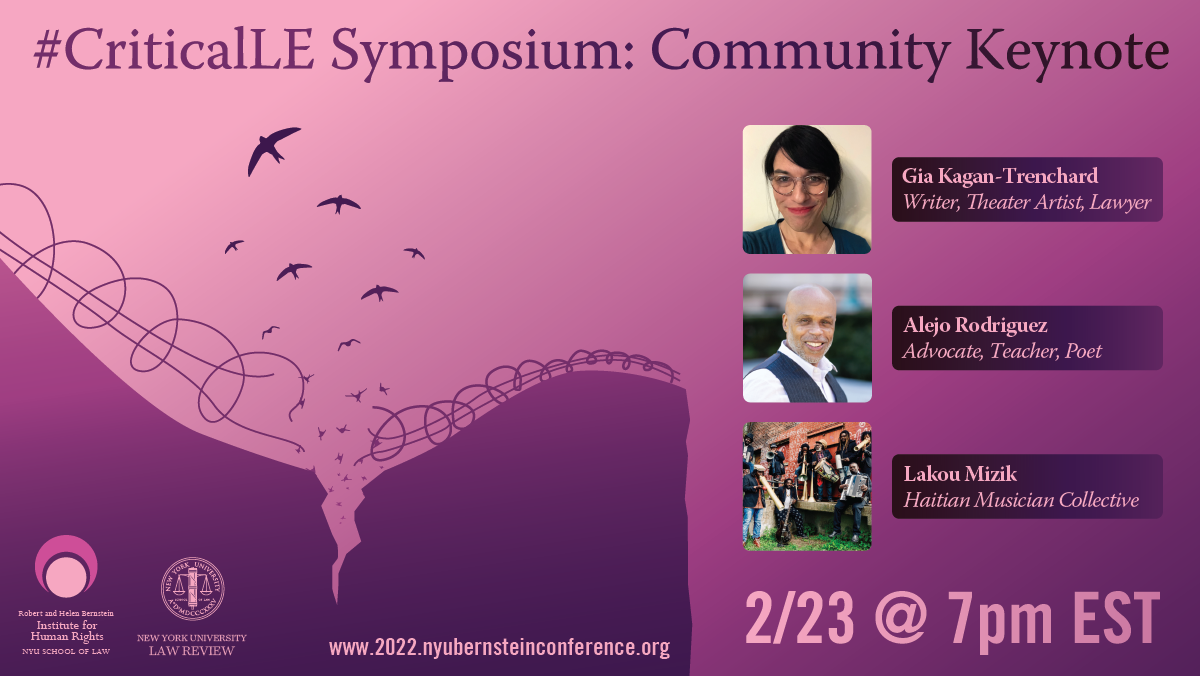
Join us for a night of creative activism as we kick-off the #CriticalLE Symposium with live music from Lakou Mizik (Haitian Music Collective) and poetry from Gia Kagan-Trenchard and Alejo Rodriguez. It promises to be a night rooted in hope, community, transformative justice.
Wednesday, February 23, 2022 7pm EST
Zoom link: https://nyu.zoom.us/j/95072482560
Lakou Mizik is a powerhouse collective of Haitian musicians united in a mission to use the healing spirit of music to communicate a message of pride, strength, and hope for their country. The music merges Haitian roots music with a soulful energy and a mix of styles that feels mystical and familiar at the same time. In the wake of Haiti’s devastating earthquake the band came together to show the world that their country was much more than the sum of headlines that were being shot around the globe.
Gia Kagan-Trenchard is a senior manager with The Freewrite Project in Prison and Justice Writing at PEN America. She is also a writer, theater artist, and attorney. Her work has been featured on HBO’s Def Poetry, TEDx, and at The Public Theater. Her first play, In Spite of Everything, toured internationally as part of the Hip-Hop Theater Festival. Her first collection of poems, Murder Stay Murder, is available on Penmanship Books.
Alejo is a social justice activist, published poet, teacher, and speaker committed to restoring the human dignities of those who have been impacted by the criminal justice system. He is a Catalyst for Change Fellow at Center for Institutional and Social Change, and the Director of Collaborative Advocacy at Zealous.. His poetry and writing work appears in OUTLAW BIBLE OF AMERICAN POETRY and DOING TIME: 25 YEARS OF PEN PRISON WRITER AWARDS. Alejo is the winner of several PEN awards, and a founding Teaching Artist for Tribeca Film Institute’s screening series at Otisville Correctional Facility. He is also the co-screenwriter of a short film entitled UNBECOMING. Alejo has prior criminal justice experience having served time in prison in New York. His struggles with parole and legal discoveries were published in the February 2019 CUNY Law Review issue.